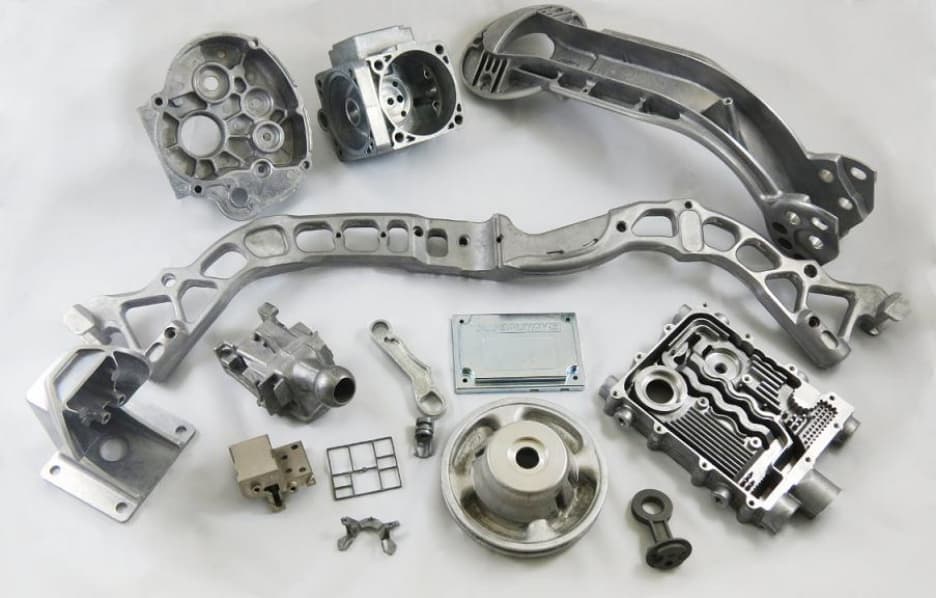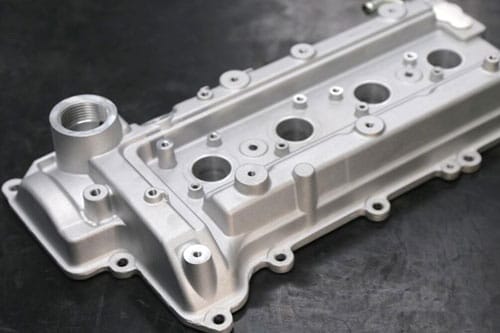The Vital Uses Aluminum Foundry in Numerous Industries and Their Impact
Aluminum foundries work as an important source within various markets. Their long lasting and light-weight products substantially improve efficiency in auto, aerospace, construction, and electronics markets. As each industry leverages aluminum's unique properties, they additionally add to sustainability initiatives. This complex impact motivates a deeper exploration of just how Aluminum formed these markets. What details technologies and advantages emerge from its usage?
Automotive Sector Applications
The auto industry progressively relies on Aluminum Foundry applications to boost automobile efficiency and performance. Light weight aluminum's light-weight nature adds considerably to sustain economy, making it a favored option for manufacturers intending to reduce emissions and enhance total lorry characteristics. Components such as engine blocks, transmission housings, and wheels are generally generated via Aluminum casting processes, enabling for elaborate layouts that satisfy extensive safety and performance standards.

Aerospace Innovations

In addition, using aerospace-grade Aluminum alloys enhances resistance to corrosion and tiredness, essential for the demanding settings airplane face. Advancements in additive production likewise enable quick prototyping and customization of parts, minimizing lead times and expenses.
Building and construction and Facilities
While the construction and framework sectors proceed to advance, Aluminum foundries are progressively recognized for their payments to contemporary building techniques. Light weight aluminum's light-weight nature and high toughness make it an excellent material for various structural applications. Shops provide components such as beam of lights, frames, and frontages that enhance the sturdiness and long life of structures and infrastructure tasks.
Aluminum's rust resistance plays an essential role in expanding the life-span of frameworks revealed to severe ecological problems. The power performance of Aluminum items also lines up with sustainable structure initiatives, adding to reduced energy usage in building and construction. Furthermore, ingenious spreading strategies have broadened the style opportunities, permitting designers and designers to develop visually pleasing yet functional frameworks.
Electronics Production
Aluminum factories play a significant duty in the electronics producing sector, where the demand for lightweight and thermally conductive products is vital. Metal Castings. Elements such as warmth sinks, casings, and brackets are usually produced using Aluminum because of its excellent thermal properties and ability to dissipate warmth efficiently. This is important in electronic gadgets, where overheating can cause failing and decreased performance
The flexibility of Aluminum permits intricate styles and accurate machining, which are essential in contemporary electronics. On top of that, aluminum's non-magnetic residential or commercial properties make it appropriate for applications in delicate electronic equipment, reducing interference. Furthermore, aluminum's resistance to rust enhances the resilience of digital parts, making sure long life and dependability.
Sustainability and Reusing Efforts
Given the increasing emphasis why not try this out on ecological responsibility, the Aluminum Foundry sector has made significant strides in sustainability and reusing efforts. Aluminum is naturally recyclable, allowing shops to redeem and reuse product with marginal power expenditure contrasted to key manufacturing. This closed-loop recycling procedure not only lowers waste however additionally reduces greenhouse gas emissions, adding to a more sustainable production version.
In addition, lots of factories are taking on energy-efficient innovations, including renewable resource resources, to power their procedures (Metal Castings). This change not only decreases dependence on nonrenewable fuel sources however likewise boosts total functional performance
Industry collaborations are additional advertising sustainable practices, such as sharing best practices and establishing ingenious recycling approaches. By prioritizing these efforts, the Aluminum Foundry field is placing itself as a leader in sustainable production, lining up with global targets for sustainability while meeting the needs of numerous sectors.

Regularly Asked Concerns
What Are the Main Benefits of Using Aluminum in Foundry Processes?
The primary benefits of making use of Aluminum in Foundry procedures include its light-weight nature, outstanding corrosion resistance, high thermal and electric conductivity, and flexibility, permitting for complex styles and reliable recycling, inevitably improving total manufacturing performance and reducing expenses. - Aluminum Castings
Just How Does Aluminum Foundry Influence Item Lifecycle Monitoring?
Aluminum Foundry substantially boosts product lifecycle monitoring by enabling effective material use, minimizing waste, and facilitating recycling. Its light-weight residential or commercial properties improve transportation efficiency, while durability prolongs item life expectancy, inevitably adding to sustainability and cost-effectiveness in production.
Are There Specific Challenges in Aluminum Foundry Production?
Certain challenges in Aluminum Foundry manufacturing include taking care of temperature level control, making certain material quality, lessening waste, and adapting to changing market needs. These aspects can influence performance, cost, and general competition within the market.
What Safety And Security Procedures Are Essential in Aluminum Foundry Workflow?
Necessary precaution in Aluminum Foundry operations consist of personal protective tools, proper ventilation, normal equipment upkeep, danger communication, and emergency situation reaction training. Executing these practices warranties worker security and reduces risks associated with this post high-temperature metal handling.
How Does the Cost of Aluminum Contrast to Other Metals in Foundry Usage?
The expense of Aluminum is usually less than that of steels like copper and titanium, making it a cost-effective choice for lots of Foundry applications. This cost contributes to its prevalent usage across various markets.
Aluminum foundries serve as an essential source within many sectors. The auto industry increasingly counts on Aluminum Foundry applications to improve car performance and performance. The product's recyclability also aligns with the market's push towards sustainability, as recycled Aluminum needs internet substantially much less energy to process contrasted to key light weight aluminum. Aluminum shops play a considerable function in the electronics producing sector, where the demand for thermally conductive and lightweight materials is extremely important. Given the enhancing emphasis on environmental responsibility, the Aluminum Foundry industry has made significant strides in sustainability and reusing efforts.